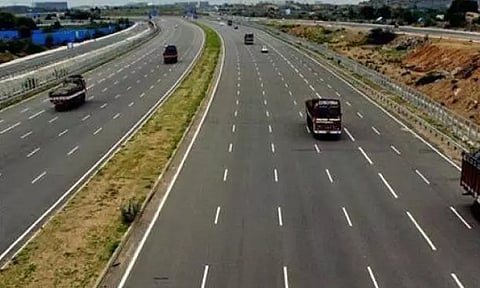

CHENNAI: The work on the Bengaluru Chennai Expressway project which was scheduled to be completed in October 2024 is running behind schedule owing to delays in works in Andhra Pradesh and is expected to be opened in July 2025.
The 262 km Bangalore Chennai Greenfield Expressway commences at Hosakote near Bangalore and ends at Sriperumbudur running a distance of 262 km via Chittoor in Andhra Pradesh.
The entirely new alignment is being built in the three states under 10 packages to make sure that the works would be executed in the fixed time duration.
According to the work progress report shared by Union Minister of Road Transport and Highways Nitin Gadkari, in Tamil Nadu, the greenfield expressway, which runs a distance of 106 km, is constructed under four packages – Gudipala (AP) to Walajahpet, Walajahpet to Arakkonam, Arakkonam to Kancheepuram and Kancheepuram to Sriperumbudur.
The physical progress of the work ranges from 51.3 per cent in Walajahpet to Arakkonam section to 39.8 per cent in Arakkonam to Kancheepuram section, it said.
In Karnataka, the work on the 71 km stretch which is being executed under three packages has completed nearly 80 per cent of the work.
However, the work along the 85 km stretch in Andhra Pradesh progressing at a slow pace.
The work on Baireddypalle to Bangarupalem section has recorded a physical progress of only 13.64 per cent while Bethamangala in Karnataka to Byreddypalli in AP and Bangarupalem to Gudipala section has recorded 42 per cent and 48 per cent progress.
Gadkari was responding to a question raised by DMK MP P Wilson. The fully access-controlled expressway will be a four-lane facility initially and then would be widened to six-lane and eight-lane with an increase in the traffic volume. The expressway is designed for a vehicular speed of 120 km per hour and would sharply reduce the travel time.